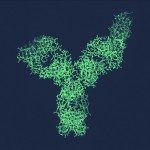Lien vers Pubmed [PMID] – 20083402
Curr. Opin. Struct. Biol. 2010 Apr;20(2):168-79
Blood coagulation disorders are leading causes of death worldwide. The system involves over 20 proteins that interact specifically with various degrees of affinity on appropriate cell surfaces. Understanding the coagulation cascade, its regulation and links to other diseases such as cancer are required for the development of novel therapies. In this review, we present applications of structural bioinformatics and chemoinformatics methods to several key coagulation proteins and show that such investigations can give insights into molecular mechanisms contributing to cardiovascular disease susceptibility and assist the design of novel and potentially safer clinical candidates.

